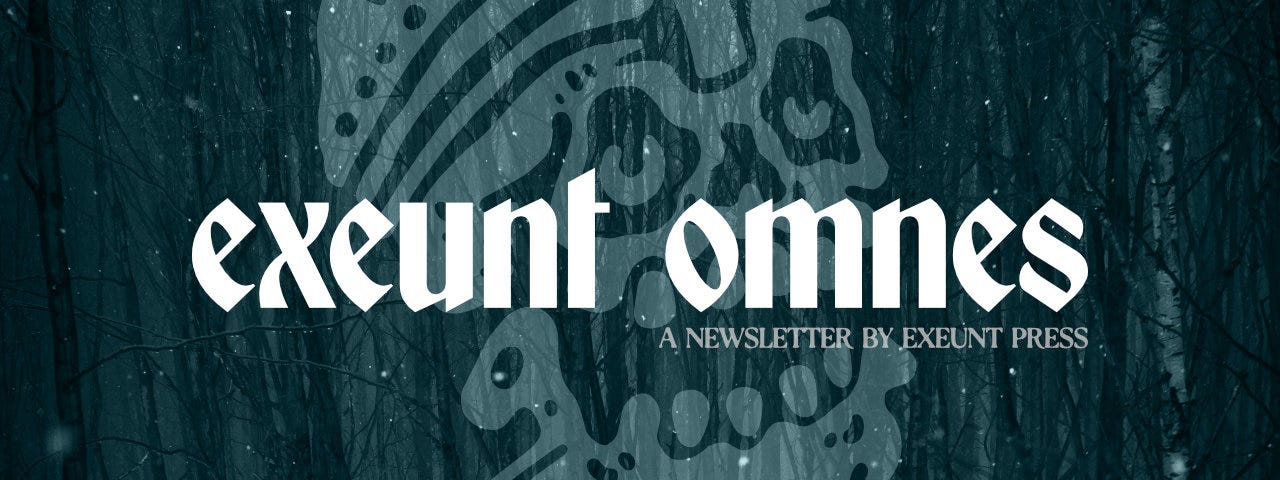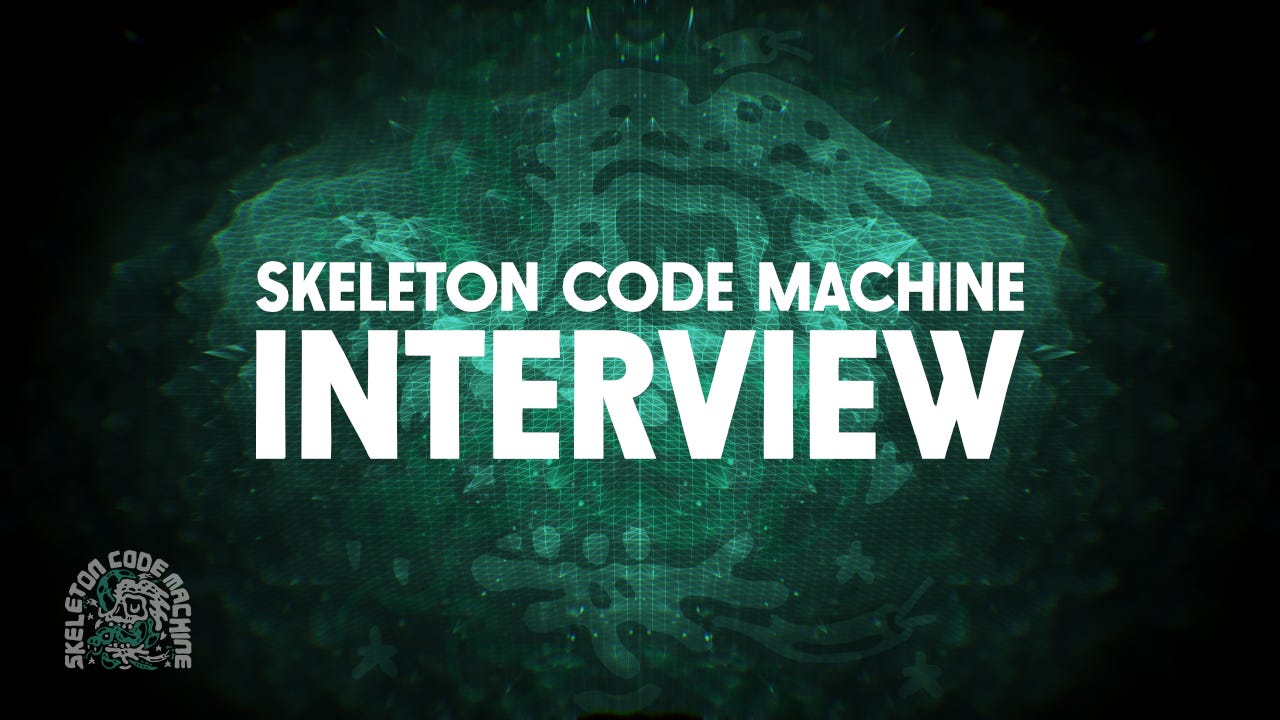How to teach a tabletop gaming class
EZB nominated for an ENNIE, designer interviews, teaching tips, and Lords of Ragnarok
TL;DR Summary
🌿 Exclusion Zone Botanist nominated for an ENNIE
🎙️ Skeleton Code Machine interview series
🧑🏫 10 tips for teaching a tabletop gaming class
🎲 Recently played: Lords of Ragnarok
🌿 Exclusion Zone Botanist nominated
Exclusion Zone Botanist has been nominated for an ENNIE Award for Best Free Game/Product!
Thank you to everyone who downloaded and played this solo drawing hexcrawl. It’s been absolutely wonderful seeing the reaction to the game, and reading the kind words in the reviews!
The next step is voting for the winner of each category, followed by the announcement of winners at Gen Con, August 3 - 6, 2023.
You can vote for Exclusion Zone Botanist here between Friday, July 14 and Monday, July 24!
Check out the ENNIE Awards website and follow the ENNIE Awards on Twitter for updates!
🎙️ Skeleton Code Machine interview series
I started Skeleton Code Machine as a way to think about game mechanisms. Rather than review tabletop games, I wanted to dissect them, and figure out what makes them tick.
This summer I wanted to try something new: talking directly with creators and designers. So I did a short series of three interviews with the theme of using code to test tabletop games.
Each designer used code in an interesting way to help develop their game:
M. Allen Hall - Sprinkles is Missing!
Spring Villager - The Last Tea Shop
Peter Eijk (JimmyShelter) - A Visit to San Sibilia
The interviews will be posted every other week between July 11 and August 8, 2023 over at Skeleton Code Machine. The first interview with M. Allen Hall is already up!
I’ve really enjoyed the chance to have these conversations, and I hope you take the time to check them out.
🧑🏫 Teaching a tabletop game class
I’m hoping to teach a tabletop gaming mechanism class at my local public library sometime this fall. Seems like a great way to meet people, share things I’m excited about, and give back to the library system!
I recently asked on Twitter for any tips and recommendations on how to run the class, and also did some reading on Reddit.
Here are a few of the tips I received:
Consider print and play games: The class is free and I don’t have a budget, so this idea is great! It also allows for easy game hacking. I’ll be hunting through itch.io and PNP Arcade. Suggestions appreciated!
Roll & Write games that support many players: The “multiplayer solitaire” aspect of roll and writes allow the whole class to play at the same time! Rolling America (Hayashi, 2015) and On Tour (DeShon, 2019) might be good examples.
TTRPG Kids is one of the best resources: The TTRPG Kids website has been immensely helpful. It has reviews, themed game lists, and more.
Use SRDs as a framework: Open SRDs like the Carta SRD (Peach Garden Games) might be a good way to provide structure with room for hacking and modification.
Teach the 8 Kinds of Fun: Marc LeBlanc’s 8 Kinds of Fun can be taught as a way to help students understand what they like and why they like it.
Use easy to learn games with a special feature: Dice Throne is a good example of a common game like Yahtzee mixed with some cards and theme. The result is a really interesting game.
Use classic card games: Standard playing card decks are inexpensive, and games like Whist and Euchre can be used to teach trick-taking. Connections can be made to modern trick-taking games like The Crew (Sing, 2019) and Tournament at Camelot (Boginski, et al., 2017).
Consider using Tunnel Goons: Tunnel Goons is a TTRPG by Nate Treme and released under a Creative Commons license. It’s simplicity allows it to be flexible and hackable into many types of games. Popular with RPG classes for kids.
Avoid long lectures and focus on activities: This is true for adult classes as well as classes for kids. Keep the presentation short, and focus on hands-on activities. It’s best if students can leave with something they made.
Hack some classic games: The example I usually use is that you can make Candy Land better simply by replacing the single card draw with a hand of cards. The advantage being that these games are widely known and usually inexpensive.
Thank you to everyone who contributed to the thread! I’d like to thank Marshall (Fine Mess Games), Craig (Craig Hatler Games), TTRPG Kids, and Michael (Luck of Legends) in particular for their thoughtful responses.
Next, I plan to watch the TTRPG Kids webinar with the Indiana State Library called “Using Tabletop roleplaying games to teach, from pre-K to adult learning.” Register for free to watch it on July 19.
Subscribe for updates on how the class planning progresses!
🎲 Recently played: Lords of Ragnarok
Lords of Ragnarok (Kwapiński, 2023) definitely checks all the boxes for a game I should like: mythological fantasy, area majority/control, combat, card drafting, and tiny bit of worker placement.
I did enjoy playing it, and the action selection mechanism (circle with tokens in photo above) was interesting!
Actions are never blocked, but instead other players who either have an alliance or have already used the space receive a bonus. Having a follow action is a good way to keep everyone engaged while it’s not their turn.
For another Awaken Realms game that I really enjoy, check out The Great Wall (Cieśla, et al., 2021).
Thanks for subscribing to Exeunt Omnes!
Check out exeuntpress.itch.io for all the latest games and resources!
- E.P. 💀







